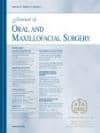
The study is published in the Journal of Oral and Maxillofacial Surgery.
The observational, cross-sectional study compared two groups (experimental versus control) of patients recruited at an outpatient orthodontic clinic. Oral health-related quality of life was assessed using a short form of the Oral Health Impact Profile, while self-esteem was evaluated with the Rosenberg Self-Esteem Scale and depression symptoms were assessed using the General Hospital Depression Scale. The presence of dentofacial deformities was the primary predictor variable. The researchers used the ?2 test and Spearman correlation coefficient to analyze data.
The total sample included 68 individuals, 34 in each group. In the experimental group, 55.9% of patients were women, and 88.2% presented with a Class II occlusal relation. The mean age in the experimental group was 27.56 years. The researchers observed significant differences between the two groups in oral health-related quality of life (P< .001) and self-esteem (P< .019), but no differences for depression (P= .161).



